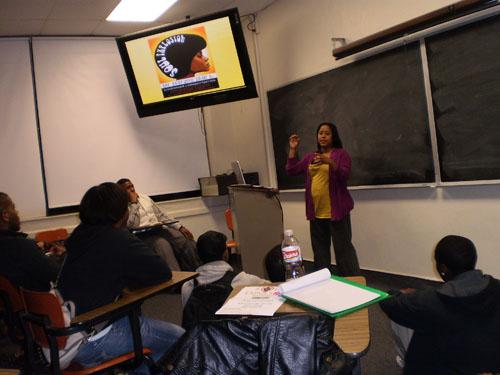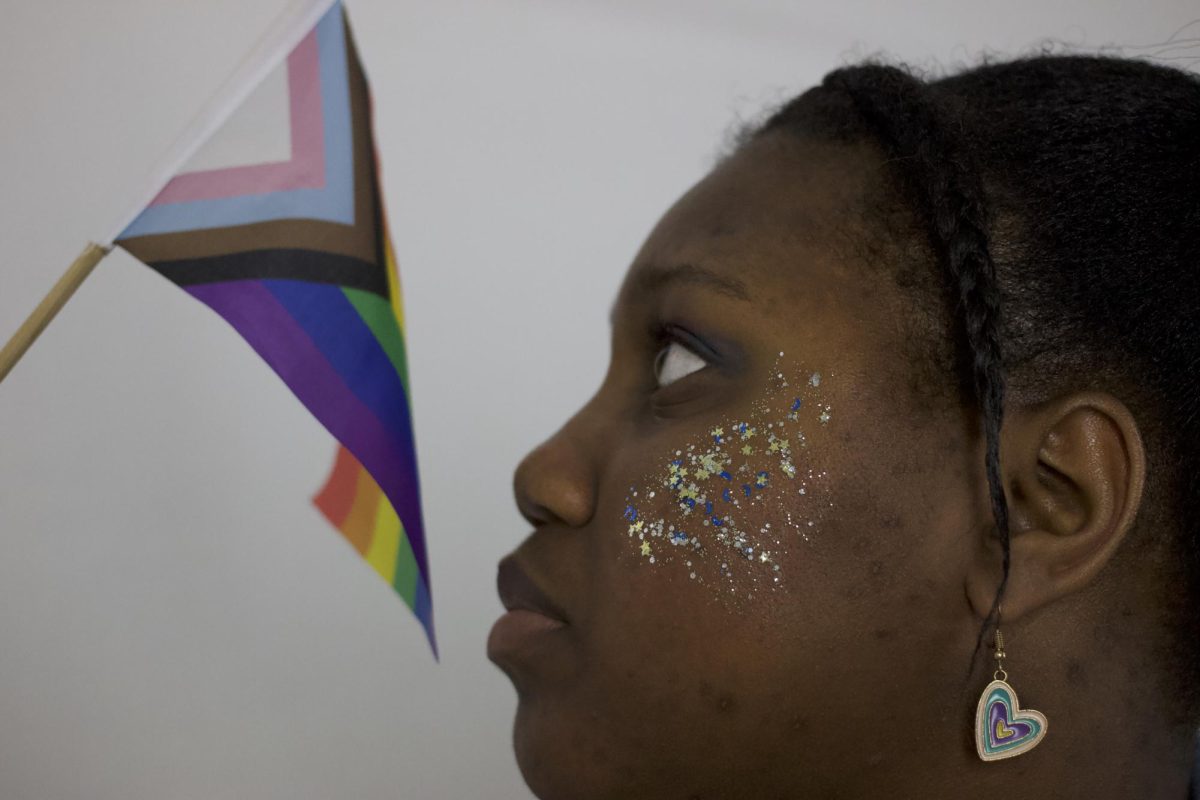Many Americans may be unaware of the effect the American culture has on other countries, but Kimberly Singletary studies images of blackness imported from the U.S. to see their effects on German culture.
Over 50 students attended “Soul Explosion: Black Women, Sex Appeal and their Representation in Contemporary Germany Culture,” an event presented by Singletary, a Ph.D. candidate at Northwestern University, on Nov. 17.
This event was the latest in a series of events on women that took place at Loyola since the beginning of the fall semester.
“Soul Explosion” focused on the representation of black women in German culture, as Singletary’s research focuses on the images of blackness imported from American to German culture. Singletary discussed her experience in Germany as an African-American woman.
To explain, she said people sometimes asked her if she had children, and when she told them she had none, they continued to ask her.
Singletary also showed a short video of Temeca Freeman, an American model in New York City.
Students in the audience laughed in the beginning, but after watching the video, a lot of them were upset because the producer represented her in a sexual way.
They criticized the German producer for not respecting Freeman’s privacy when she went to get a massage. The film crew was allowed into the room where she was having a massage, and many students in the audience said they thought it was uncalled for.
Singletary said she felt uncomfortable when she first watched the video, and that it was an exaggerated image of blackness and black women.
Singletary said that black Germans are not considered Germans. Instead, they are considered Africans, except for Michelle Obama.
Lisa Martin, Center for Intercultural Understanding director and mass communication professor, asked how the first lady is viewed in Germany.
“They said that she is smart, and she is what Americans are supposed to be,” Singletary said.
Singleton said she became a journalist because of her experience abroad.
“I traveled in more than six countries. People asked the same questions over and over, ‘Where are you from? Why you are here? Are your parents Americans?'” she said.
She said she realized that she is part of the problem because she was treated like any black person, and she prefers to engage in a talk about the topic rather than writing the same story over and over for a newspaper.
Wadner Pierre can be reached at wpierre@loyno.edu








